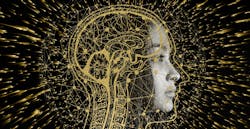UVA pioneers study of genetic diseases with mind-bending quantum computing
Scientists at the University of Virginia School of Medicine are harnessing the mind-bending potential of quantum computers to help us understand genetic diseases – even before quantum computers are a thing.
UVA’s Stefan Bekiranov and colleagues have developed an algorithm to allow researchers to study genetic diseases using quantum computers – once there are much more powerful quantum computers to run it. The algorithm, a complex set of operating instructions, will help advance quantum computing algorithm development and could advance the field of genetic research one day, according to the new UVA study.
Quantum computers are still in their infancy. But when they come into their own, possibly within a decade, they may offer computing power on a scale unimaginable using traditional computers.
“We developed and implemented a genetic sample classification algorithm that is fundamental to the field of machine learning on a quantum computer in a very natural way using the inherent strengths of quantum computers,” Bekiranov said. “This is certainly the first published quantum computer study funded by the National Institute of Mental Health (NIMH) and may be the first study using a so-called universal quantum computer funded by the National Institutes of Health (NIH).”
The new algorithm essentially classifies genomic data. It can determine if a test sample comes from a disease or control sample exponentially faster than a conventional computer. For example, if they used all four building blocks of DNA (A, G, C or T) for the classification, a conventional computer would execute 3 billion operations to classify the sample. The new quantum algorithm would need only 32, which will help scientists sort through the vast amount of data required for genetic research. It is also proof-of-concept of the usefulness of the technology for such research.

